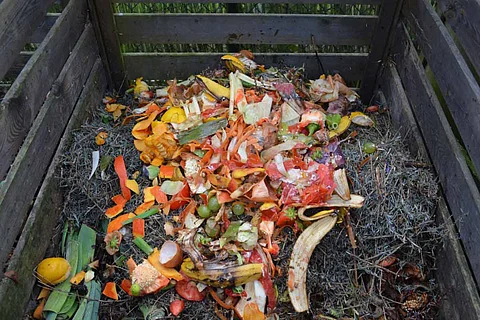

In late March, waste collection in parts of Kochi city was hit due to the lockdown and subsequent staff shortage. Though the corporation had allotted special vehicles to bring the staff in to work, issues persisted. The few who did work, did so with the risk of contracting COVID-19 while handling waste. "In the beginning we were not provided with masks or gloves; we had no clue about hand sanitisers. We went to each house and collected waste. Later, we were provided with safety gears, but we were so scared in the beginning. Many remained at home fearing coming to work. But we did not have a choice," a sanitation worker from Kochi told TNM.
This, even though most parts of Kerala have, on paper, implemented a decentralised system of waste management that involves waste segregation, and composting of organic waste at home. However, Indians have been resistant to such measures, with some exceptions. Experts are now saying that the pandemic, which is compelling people to stay home, is a good time to understand how necessary it is to take responsibility for your own waste.
"Is it possible for local governance bodies to collect waste from all over the city during this pandemic? Do people think about how safe it is for sanitation workers?” questions Shibu K Nair project coordinator Thanal, a green non-governmental organisation.
Segregation is key
Jagjeevan, a consultant with the Haritha Kerala Mission, says that it is uncivilized to expect others to pick up and manage our waste.
He adds that decentralising waste management is the best solution for waste disposal. "Segregation of waste is key. Plastic, biodegradable, medical waste and other-non degradable waste have to be treated separately. As per our system, biodegradable waste has to be composted in compounds in the house or in the apartment complexes. Corporation has allotted plastic waste collection centers, where plastic collected can be sent for recycling or shredding.”
Giving the example of Thiruvananthapuram, Shibu K Nair says that the bio-bins and aerobic bins given by the corporation have been quite successful. “In Thiruvananthapuram, bio bins and aerobic bins that convert organic waste to manure are placed in households and at some public places, which have been very successful. The pandemic has made the importance of decentralised waste management even clearer," Shibu adds.
He says that plastic collection for recycling in Thiruvananthapuram has also been successful – many people even now deliver recyclable plastic to the collection units at different places when they step out for essential things. "Plastic collected by the corporation is sent for recycling by paying Rs 6 per kilogram to recycling companies or facilities. The plastic that is found unrecyclable is sent to Malabar cements for burning it with the cement.”
However, one drawback presently is that there is no system of disposal of diapers or sanitary napkins. “People can be made aware to switch to sustainable alternatives,” Jagjeevan says.
Reduction in dumping waste
People in Kerala also seem to be finally learning what has been said for years together – that dumping waste and littering is avoidable, and a health hazard.
People TNM spoke to say that they are already seeing a reduction in illegal waste dumping, and littering in public areas in Kerala since the lockdown. Some of the traders near Palayam market said that people have stopped dumping waste in the area behind the market. "Earlier, we couldn’t even pass through here due to the stink. Now, people are no longer coming in vehicles to dump waste here," a trader tells TNM.
Ajayan, an auto driver who lives on the banks of Parvathyputhanar canal where people used to dump waste from animal slaughter says, "We haven't seen any slaughter waste in the water for many days now. It is a relief.”
"People have learnt to compost their waste, rather than throwing it in some other place. If they can manage their waste during these lockdown days, they can do it later also,” Shibu asserts.
Contrarian arguments
There are some arguments against composting in urban areas and doubts about its practicality. VN Sivasankara Pillai, former Director of the School of Environmental Studies at the Cochin University of Science and Technology (Cusat), tells TNM that such practices in flats and in many small houses may pose a challenge.
"In urban areas, there are space constraints. It may not be possible to have large bins. During summer, composting may be easy. But when the rain starts, this decomposition may not happen as expected due to the humidity and worms coming out of the compost,” he says.
Jagjeevan disagrees. He argues that people can use spaces on their roofs for composting if they do not have space in the house. They can also keep the bins closed with a lid to prevent rain water from going in. And if done properly, it is quite practical too, he says.
Both Jagjeevan and Pillai emphasise on the need to segregate waste properly. “Even centralised waste collection should be done with proper segregation in urban areas," Pillai says.